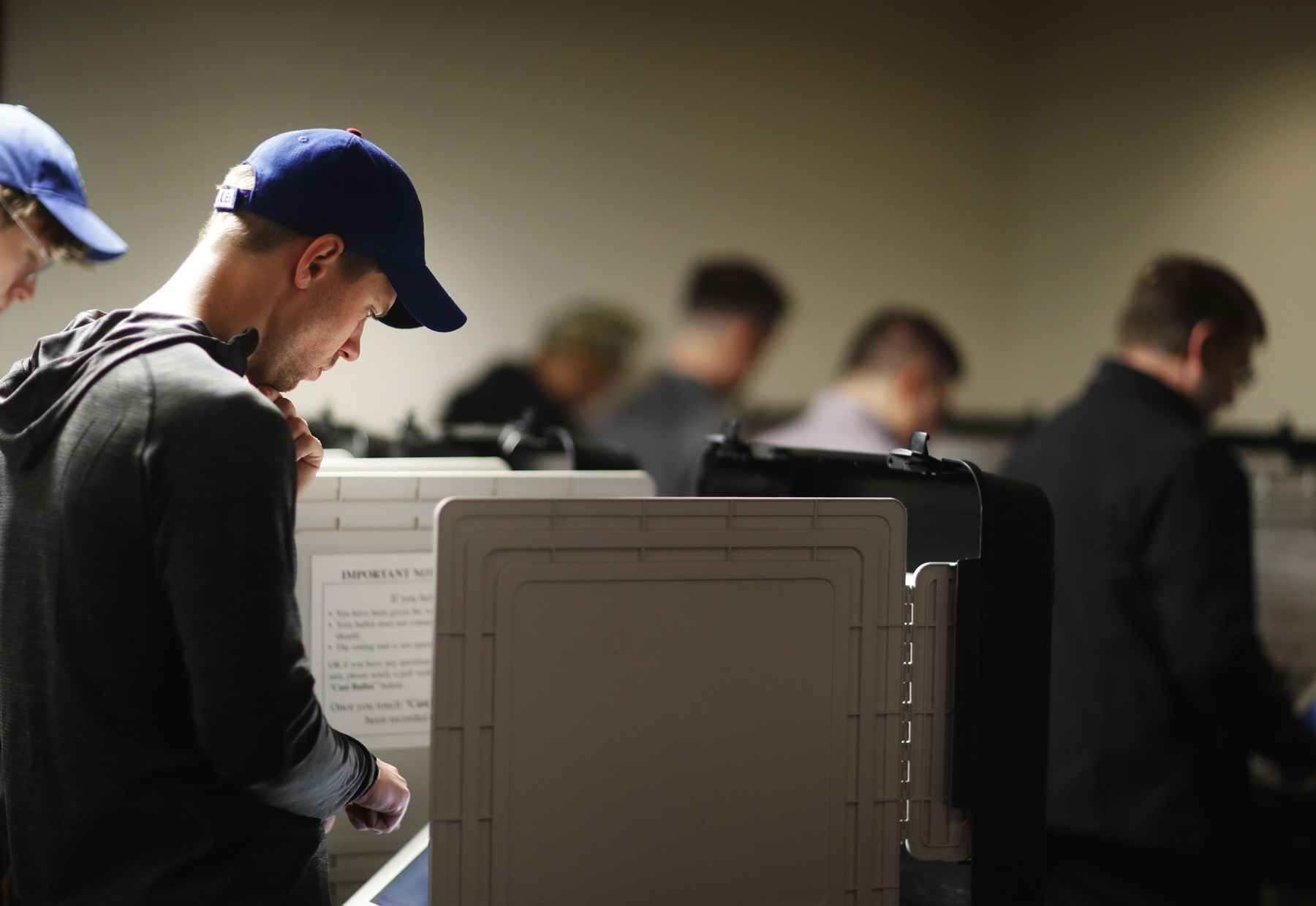Georgia House Passes Sweeping Election Overhaul

The House bill — passed 101-72, mostly along party lines — would require the use of electronic machines that print paper ballots by 2020. Cybersecurity experts warn touchscreen machines that print paper ballots are vulnerable to potential hacks or malfunction. The bill still needs state Senate approval before it would go to Gov. Brian Kemp.
David Goldman / Associated Press file
The state House of Representatives on Tuesday passed what would be the most substantial overhaul in nearly two decades of how Georgia voters cast their ballots in person.
The bill, HB 316, would require the use of electronic machines that print paper ballots by 2020. Voters would make their selections on touchscreen computers. The paper printout would be counted by a scanner and then stored for recounts or audits.
“I think the system that we have had has served us well, but it is now 17 years old,” said the bill’s sponsor, Republican Rep. Barry Fleming. “It has a shelf life; it is time to move on. That’s what this bill does. It looks forward to the future, not to the past, and gives us a good system that we can count on.”
The bill passed 101-72, mostly along party lines, after more than two hours of debate. It was first introduced on Feb. 14 and moved through the House in 12 days, an unusually quick timeline.
Cybersecurity experts warn touchscreen machines that print paper ballots are vulnerable to potential hacks or malfunction, even though they include a paper backup.
They say there’s no way to be sure voters will check that what they picked on the touchscreen matches what’s on the paper printout, essentially making an audit of the paper useless after an election.
Audits can be used to confirm election results, as well as detect glitches, irregularities or hacks.
Computer scientists and software experts recommend paper ballots marked by hand, counted by a scanner and then stored for recounts or audits.
Democrats in the Legislature, like Rep. Jasmine Clark, favor hand-marked paper ballots.
“I am not anti-technology by any stretch of the imagination,” said Clark. “I, however, understand the limitations of technology.”
“Either we employ the ballot-marking devices or we employ risk-limiting audits,” said Clark. “We cannot do both. It is not possible.”
HB 316 includes a number of provisions not related to voting technology. The bill would put restrictions on when polling places can be changed and when an individual can be removed from the voter registration list, for example.
Democrats generally favor measures like these that would make voting easier but denounced that they were included in a bill that focuses on updating Georgia’s voting technology.
The bill still needs state Senate approval before it would go to the desk of Gov. Brian Kemp.
His office declined to comment on the bill.








